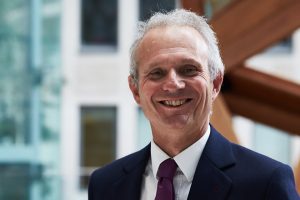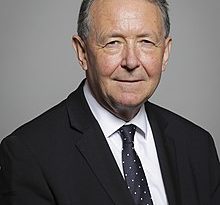David Lidington – 2018 Statement on the Infected Blood Inquiry
Below is the text of the statement made by David Lidington, the Chancellor of the Duchy of Lancaster, in the House of Commons on 2 July 2018.
On 8 February 2018, I announced the appointment of Sir Brian Langstaff to chair the infected blood inquiry. From the outset, Sir Brian has been clear that he is determined to put people at the heart of the inquiry and to ensure an inclusive and transparent process.
Sir Brian and his team conducted a public consultation on the proposed terms of reference for the inquiry, which ran from 2 March to 26 April. They invited contributions via an online questionnaire, email, written correspondence and telephone. The inquiry team also held 15 meetings with groups and individuals across the UK, and Sir Brian is keen for the inquiry to continue to do that as it moves forward.
The inquiry received almost 700 responses to its consultation and Sir Brian, having reflected on those consultation responses, wrote to me on 7 June to advise me of the outcome and of his recommendations for the terms of reference. The terms of reference are comprehensive and reflect the key points made during the consultation.
The geographical scope of the inquiry is UK-wide. The inquiry will look at issues relating to the whole of the UK, as well as regionally. Sir Brian expects the inquiry team to hold regular meetings across the UK. I have therefore consulted, as I am required to do under the Inquiries Act 2005, with the devolved Administrations of Scotland and Wales and, in the absence of a Northern Ireland Executive, with my right hon. Friend the Secretary of State for Northern Ireland who, in turn, consulted the permanent secretary of the Northern Ireland Department of Health. The Governments of Scotland and Wales, and my right hon. Friend, were content with Sir Brian’s recommendations, and I am happy to accept his recommendations without amendment. I have written to Sir Brian to confirm this.
The terms of reference have been published and deposited in the Libraries of both Houses today. The inquiry can now formally begin its work; it will start today—2 July 2018. Sir Brian proposes to use groups of experts to assist the inquiry. Those groups would cover all the material fields relevant to the inquiry. Their evidence would be public, transparent and subject to scrutiny. People affected, and other participants to the inquiry, will be able to propose experts and put forward questions to the expert groups.
During the inquiry’s public consultation, views were expressed both for and against the appointment of additional panel members. Some, noting the complex and difficult issues to be examined by the inquiry, wanted a panel of many experts to assist the chair. It is Sir Brian’s view that his proposal for expert groups will achieve the objectives of those who have been in favour of panel members by providing legitimacy and transparency, a diverse range of expertise and, importantly, speed. Sir Brian’s view is that experts will be able to progress work in parallel in a way that co-determining panel members could not and that, very importantly, everything the expert groups will do will be public. Sir Brian plans now to discuss this proposed approach with those who will most centrally participate in the inquiry, particularly survivors and the groups representing them, and to ask them whether, in the light of the proposed approach, there remains any significant wish for him to be joined by a decision-making panel. Sir Brian has asked me to defer a decision on panel members until core participants have been appointed and have had the opportunity to consider the proposed approach.
I am aware that when my right hon. Friend the Member for Ashford (Damian Green) met people affected before Christmas last year, many supported the idea of the chair sitting alongside other panel members. I have not lost sight of that, but I think it is only right that I allow Sir Brian time to consult core participants. I therefore do not propose to appoint other panel members at this time, but I will consider the issue once core participants have had an opportunity to look at Sir Brian’s proposed approach. Of course, section 7 of the 2005 Act allows me to make further appointments to the inquiry panel during the course of the inquiry, with the consent of the chair. Speed is of the essence, and I have asked Sir Brian to report back to me as quickly as possible; I will then make my decision on panel members.
Many thousands of people from across the United Kingdom have been affected by this terrible tragedy. Sadly, a number of those affected have died since the inquiry was announced. One of the clearest messages from the inquiry’s consultation was the need for speed. In his letter to me, Sir Brian noted that one respondent to the consultation had said:
“I really hope this Inquiry does not drag on as I would like to live long enough to see the result”.
It is extremely important that the infected blood inquiry can complete its work as quickly as a thorough examination of the facts allows, and this is something that Sir Brian and his team are very aware of.
This inquiry is a priority for the Government, and I have assured Sir Brian that the Cabinet Office will provide all the resources and support that the inquiry needs to meet the demanding timescales that are essential in order to meet the expectations of people affected by this tragedy, who have already waited so long for answers. The inquiry will have much to do over the coming months, and I am sure it will waste no time in getting started. The first stages of the inquiry will be critical for obtaining evidence, including witness statements from people who have been infected and affected. The inquiry will use this evidence to help to uncover what happened and why. It will hold its preliminary hearings in September at Church House, London, where core participants will be able to set out their priorities for the inquiry. My exchange of correspondence with Sir Brian and the full terms of reference have been placed in the Libraries of both Houses, and I commend this statement to the House.


